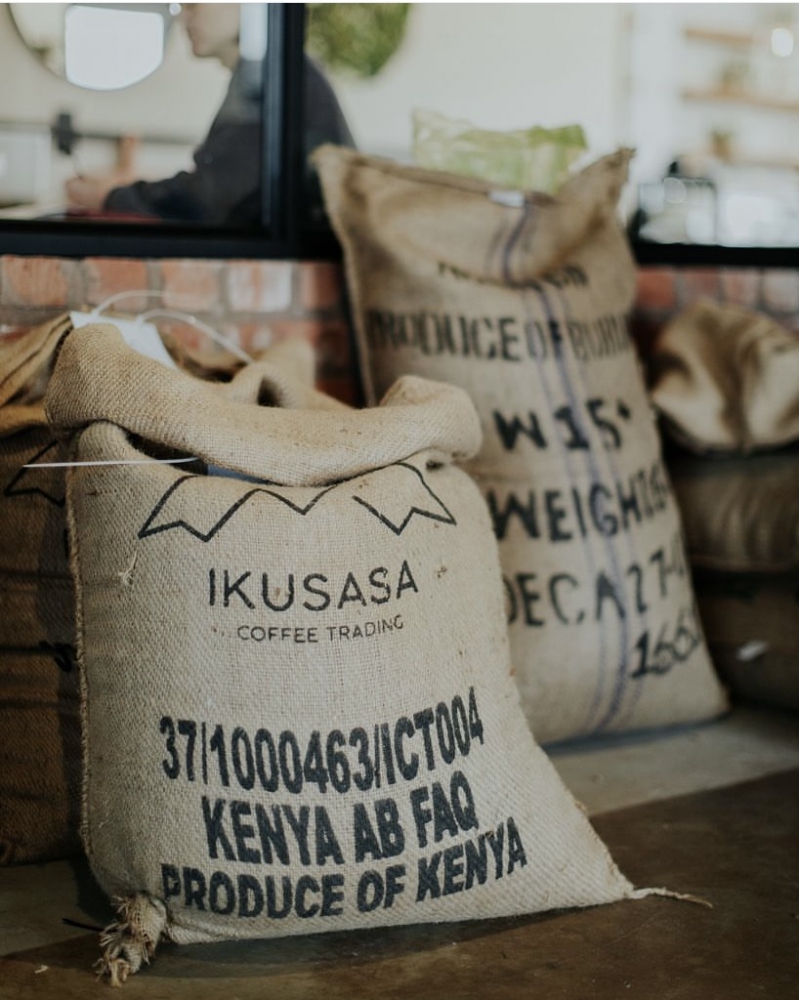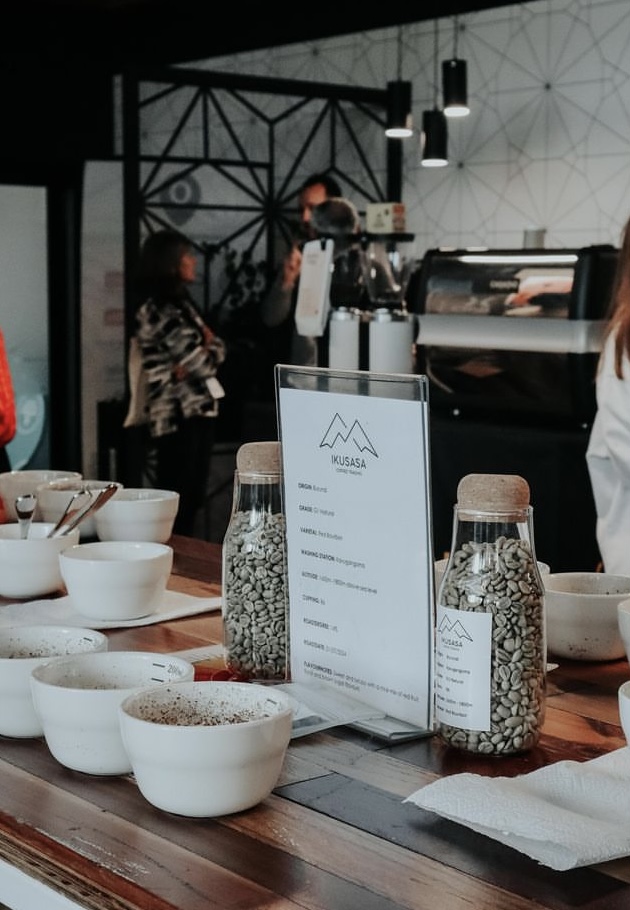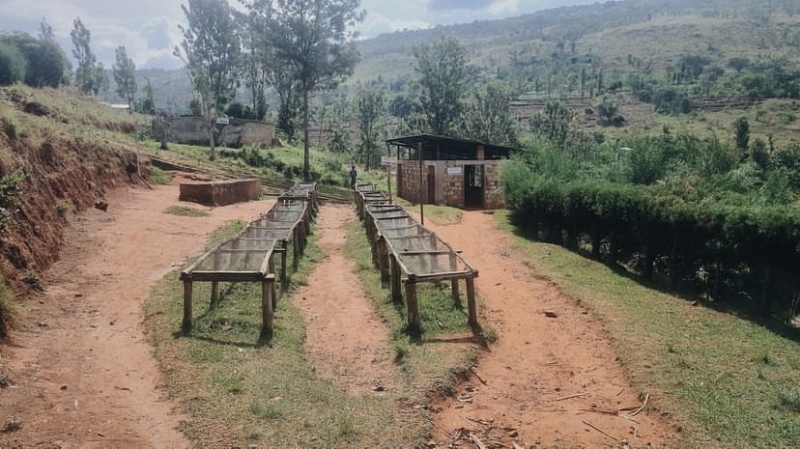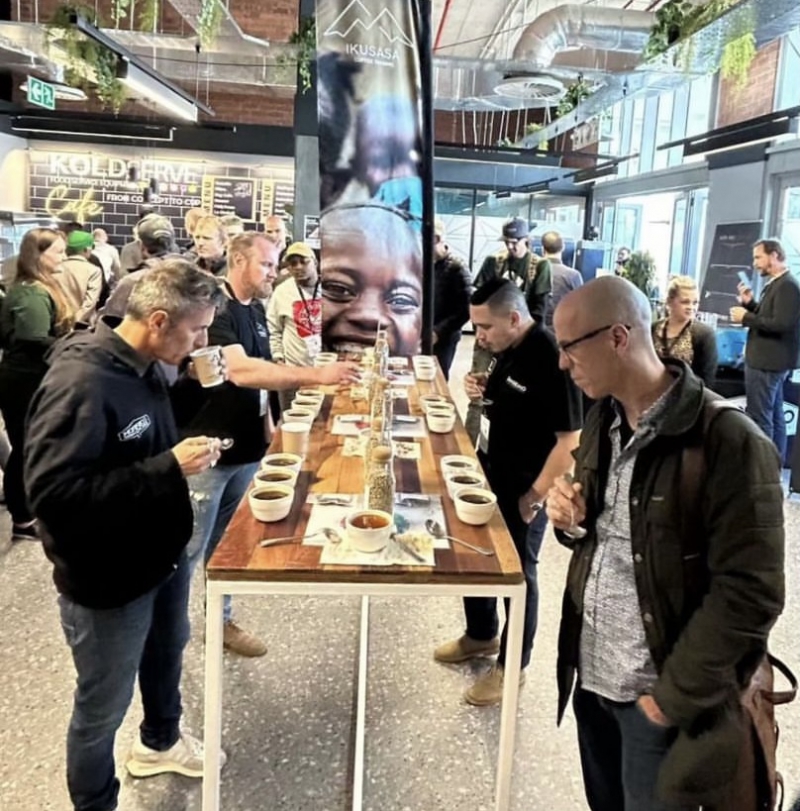An interview with Craig Smith, the man behind new green coffee importing company, Ikusasa Coffee Trading.
Tell us a little about your background in coffee before Ikusasa?
Before coffee, I worked as a mechanical engineer in the auto-motive industry for 11 years. Once getting involved in the commercial aspects of this industry it really lit a fire in me for entrepreneurship and business. Since I was already in love with coffee as a home brewer, it naturally made sense to start something that aligned with my passions. At the end of 2016 my wife and I launched our first café, Ground Coffee House in our hometown, Hilton KZN. I opened the shop and was roasting on 1kg Bullitt machine which was a recipe for burnout, roasting 1kg of coffee at a time is not sustainable! So our next step happened relatively quickly and by partnering with family, we were able to buy a bigger roaster and launch Manna Roastery. Manna Roastery has grown over the last few years as the market continues to become more discerning and appreciates a better cup. Our efforts before the birth of Ikusasa have largely been focused on sourcing the best coffee we could, developing our roasting skills and the management of our café and restaurant outlets.

How did the idea of Ikusasa come about and how do you see it fitting into an already very busy green coffee trading environment?
Over the years, I have done some short-term mission work in the central parts of Africa, more specifically the DRC/Burundi/Rwanda area. This has afforded me the position to make some wonderful friends in the region and see some of the coffee industry from the farming and processing perspective. Naturally these places and people have become special to me, and I hold them closely to heart. For a while I was sourcing coffee through some of these contacts and producers exclusively for Manna Roastery. This meant we were able to offer something different to the market but even more importantly, we could work closely with the producers and be involved in trying to uplift their communities. It was only during a national coffee shortage in 2022 that we realized that we were already sitting on a much-needed solution for the local market. It was here that it made sense to take what we were already doing and scale it into something much larger where more roasteries could yield the benefits that we ourselves were enjoying.
I feel that the local roasting industry needs a larger and better representation of African coffees in their offerings. It is also a growing industry so I think there is more than enough room for us to do our part in seeing these coffees better represented. Ikusasa is versatile in that we have multiple ways of sourcing at different levels within the supply chain and can therefore offer a much more customized approach in serving our customers. I also think this brings some much-needed diversity in business style to the green trading environment.

Tell us about your offering as Ikusasa?
At the moment we are sourcing from Kenya, Burundi and Uganda. We have good contacts in DRC and Tanzania and are excited to be adding these to our list of origins soon. South American coffees will follow. We strive to carry a variety of coffee from each origin ranging from price conscious under grades, commercial grades all the way to some top specialty. In fact, we have just received our latest consignment of Burundi micro-lots from a washing station I have spent some time at. This producer has won some Cup of Excellence awards in the past, so be sure to secure some of this if you can.
Tell us about some of the local projects you’re involved in at origin level?
In the highlands of Burundi in a small village called Mwakiro we have partnered with a producer (although late in the project), to bring fresh water into the village as well as cleaner sanitation into a nearby school by building toilets. Funds were largely sourced from the USA for these two projects and the donors have shown interest in funding future projects. As a result of this, the same producer has begun work on building another facility that would be used primarily as an orphanage, but with some focus on up-skilling young adults for the work place and community contribution. Because projects often have to go through vigorous scrutiny and assessment this often means that funds are not always readily available and thus the projects are funded from the producer’s profits! Although in these early stages of our business we are not able to assist with funding, the goal is to help with selling more coffee out of this area thus putting more money back into the community. Since we can see where the money goes and the heart behind it, it’s difficult not to get involved when you see something as beautiful as this.
Further to this, Ikusasa has partnered with iThemba Projects, on a local level who are involved in community upliftment in the informal settlement of Sweetwater’s. As we involve ourselves with their projects and team, we learn from their tremendous success and aim to impart this into these same special farming communities. We look forward to taking a lot of the iThemba program and learnings around orphans and deploying this knowledge in this upcoming facility in Mwakiro. One of the big problems with community upliftment programs is that they often solve many problems within the community but subsequently create an even bigger one – dependency! A big lesson for me has been to avoid trying to be the “hero”! We need to create an environment for people to thrive and foster their ability to solve their own problems. This is true and sustainable development.

What are you most excited about in this new venture?
I think just about everything within Ikusasa excites me. It’s always been our dream to work into these special untouched regions of the world. The fact that coffee, which is another passion of mine, would be the vehicle in which we could bring the economic traction required to make these differences is the ultimate bonus. Over and above this, green trading happens to be a very complex and difficult business to sail. We are subject to so many factors that are outside of our control and yet still have to be competitive and bring value to the market. I feel challenged and excited at the same time as we are faced constantly with both problems and opportunity. There is a lot to come in this industry with global climate change, the increase of demand on this commodity and the inability for the framers to sustain their businesses. As a green trader we are at the forefront of navigating some of these icebergs ahead and I feel charged to bring solutions to our market and the farmer. It’s a unique space to be in and I feel honoured that I may be able to play a part in future sustainability.
How has running this green coffee business changed your outlook from a Roaster & Cafe Owner perspective, if at all?
It has most definitely changed my perspective. I think the most glaring thing is the level of ignorance that exists as you make your way down the supply chain. As coffee passes through the various hands it seems like the challenges, the effort, the complexity of process and shear distance that this commodity has to travel is forgotten. This voyage that coffee undertakes before it gets into your cup is truly extraordinary. It takes about a 90 cherries to produce 19g of ground coffee for your flat white. It takes about an hour to hand pick 90 cherries and I’ve seen some of these farmers walk for up to two hours to get those same 90 cherries to the washing station. These cherries still have to be de-pulped, soaked, washed, soaked again, carried and laid out for drying, packed and transported, milled, graded, colour-sorted, handpicked for defects, packed and still transported again halfway around the globe. Not taking any losses into account, in which there are too many to mention, its staggering to realise just how much work goes into yielding those 19g of ground coffee. To think we can smash that flat white in 5 gulps or that an untrained barista can under extract the shot in 15 seconds shows the enormous imbalance there is in this equation. As coffee makes its way through these various processes, it’s as though each step is detached from the next. Each business lives in its own fish bowl, fixated on its own profit and mostly unaware of what was done before them and how they fit into the larger picture. This is especially true once the green bean moves past the roaster and into the café environment and consumer level. The enormous effort has long been forgotten and all that is left is a beverage on the menu with a heavily scrutinised price. We have a long way to go to help our industry and market appreciate just how much the stars really have to align for an amazing cup of coffee!

Which are currently your favourite top 3 coffees in stock and why?
1. We have G1 Honey-Process from Kavugangoma washing station. It highlights the best of red bourbon grown at high Burundi altitudes. Even roasted lighter, it’s big, bold, round, surprisingly clean and so juicy – almost chewy!
2. Our Kenyan ABC is remarkable in a blend. It truly is some of the best value for money on the market. It has the price of a fuller bean, but still has that distinct Kenyan character – I often describe it as “sunshine in your mouth”. It has the ability to really elevate a blend without negatively effecting the price point. Kenyan are not normally favoured for blending however this ABC continues to surprise us!
3. Our Burundi Fully Washed 15+ from Kayokwe washing station. We roast it for espresso at 16% moisture loss and serve it as a Single Origin. It’s buttery as an espresso and is distinct in milk. Our customers continue to rave about this one!